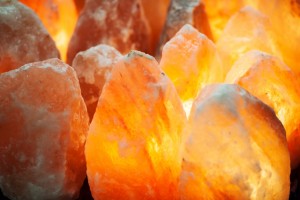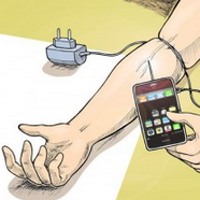Adderall is a stimula nt drug prescribed mainly to ADHD patients to increase their focus and concentration. There has been an enormous increase in the use of un-prescribed Adderall in college students recently. A study by Johns Hopkins Bloomberg School of Public Health watched mainly 18-25 year olds use of the drug from 2006-2011. Over this period of time, the amount of Adderall prescribed stayed the same but non-prescribed use of the drug rose 67% and emergency room visits rose 156%.
nt drug prescribed mainly to ADHD patients to increase their focus and concentration. There has been an enormous increase in the use of un-prescribed Adderall in college students recently. A study by Johns Hopkins Bloomberg School of Public Health watched mainly 18-25 year olds use of the drug from 2006-2011. Over this period of time, the amount of Adderall prescribed stayed the same but non-prescribed use of the drug rose 67% and emergency room visits rose 156%.
Why are there so many more emergency room visits? The recreational use of Adderall with, alcohol, marijuana, and/or cocaine has become much more common and is extremely dangerous. When drinking alcohol while on Adderall one is much more likely to get alcohol poisoning. The use of any drug (including alcohol) severely increases the chances of overdose and/or complications such as a heart attack. It is also very easy for people who are already abusing the drug to become addicted. If one were addicted and didn’t take it one day they would feel foggy, tired, and unable to concentrate or be productive. The withdraw effects are severe and it is often difficult for users to quit on their own.
The majority of people who misuse Adderall are students but other large groups who abuse the drug are working professionals, athletes, and people with eating disorders. Athletes use it to feel less tired and more focused during games, and people with eating disorders use it for its ability to suppress appetite.
The side effects  of using Adderall include irregular heartbeat, increased blood pressure, anxiety, paranoia, headaches, and depression. Ultimately, if you are prescribed Adderall and use to because you actually cannot concentrate without it, the risk of these side effects are worth it. If you are using it to “have a good time” and plan on using it with other drugs/alcohol the risk is most definitely not worth the reward of……? It is one’s own decision if they want to use it as a “study drug” but personally I do not think the risks of all these side effects and the long term effects are worth it.
of using Adderall include irregular heartbeat, increased blood pressure, anxiety, paranoia, headaches, and depression. Ultimately, if you are prescribed Adderall and use to because you actually cannot concentrate without it, the risk of these side effects are worth it. If you are using it to “have a good time” and plan on using it with other drugs/alcohol the risk is most definitely not worth the reward of……? It is one’s own decision if they want to use it as a “study drug” but personally I do not think the risks of all these side effects and the long term effects are worth it.

 orange/yellow rock taking up a large portion of her desk and recommended she gave that the boot. I immediately regretted my suggestion when she turned around with a look of disgust on her face. “It’s not a rock, it’s a salt lamp and you’ll thank me later when our room is clean and you don’t get sick” I was very skeptical, until about a month later. The bulb in the lamp died. For a few days nothing changed but slowly we noticed dust collecting in our room, and both of us developed small colds. Was it a coincidence, simply ironic timing, or was the salt lamp keeping us healthy?
orange/yellow rock taking up a large portion of her desk and recommended she gave that the boot. I immediately regretted my suggestion when she turned around with a look of disgust on her face. “It’s not a rock, it’s a salt lamp and you’ll thank me later when our room is clean and you don’t get sick” I was very skeptical, until about a month later. The bulb in the lamp died. For a few days nothing changed but slowly we noticed dust collecting in our room, and both of us developed small colds. Was it a coincidence, simply ironic timing, or was the salt lamp keeping us healthy?
 versy that came with the most recent presidential election, differing political views are more prominent than ever. It has proven itself over and over again that political views have creeped into areas far from politics. Such as job hiring, relationships/friendships, churches and many others.
versy that came with the most recent presidential election, differing political views are more prominent than ever. It has proven itself over and over again that political views have creeped into areas far from politics. Such as job hiring, relationships/friendships, churches and many others. 




